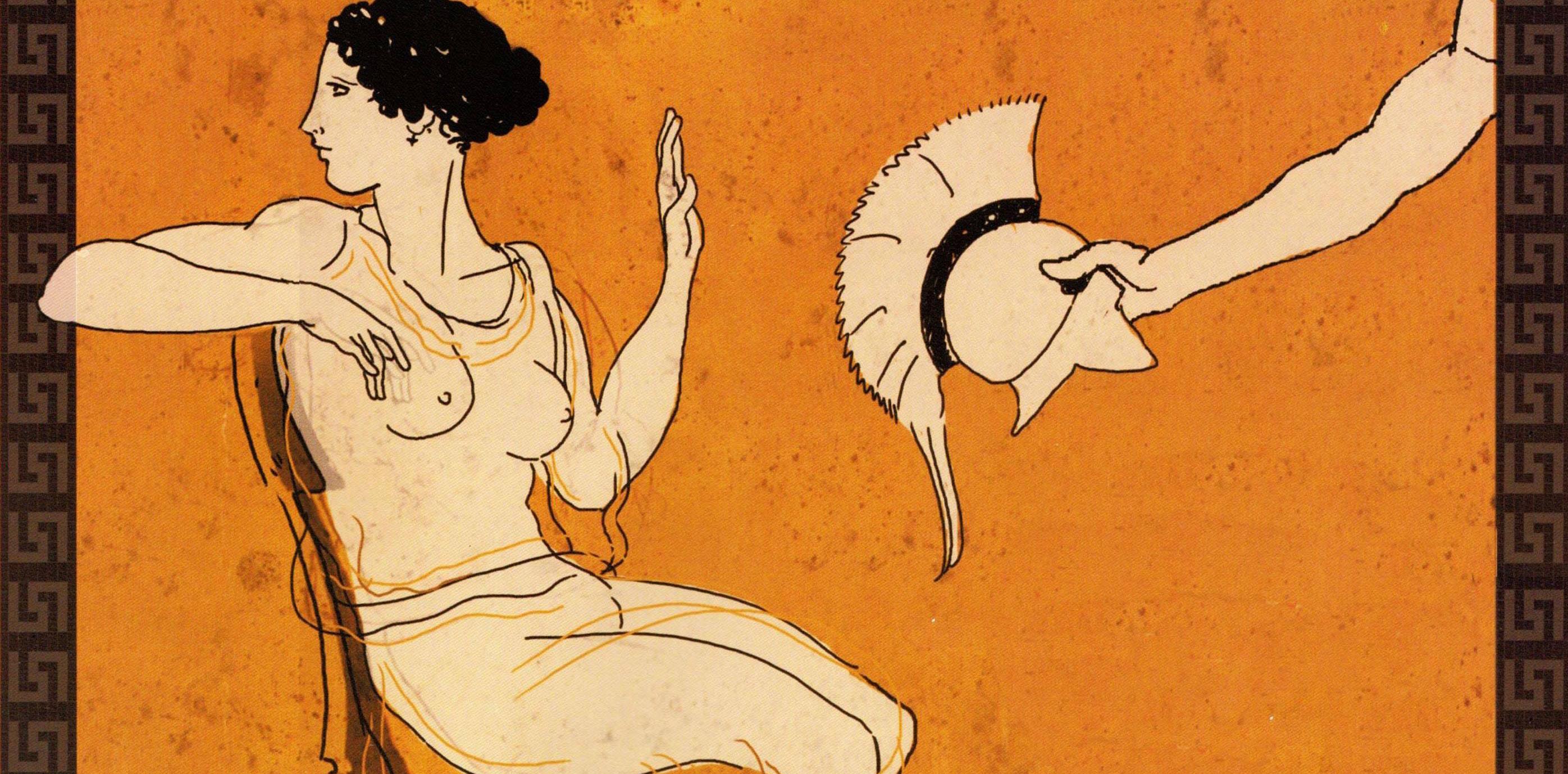

Notes on THE EPIC OF GILGAMESH
AUTHOR & CONTEXT
• Aristophanes (c. 446–386 BCE): Known as the greatest comic playwright of ancient Athens, often called the “Father of Comedy.”
• Lysistrata (411 BCE): Performed during the Peloponnesian War (431–404 BCE) between Athens and Sparta. At the time of its staging, Athens had just suffered a devastating defeat in Sicily, and morale was low.
Aristophanes uses humor, satire, and exaggeration to comment on politics, war, and gender roles.
PLOT SUMMARY
• Main Idea: Athenian woman. Lysistrata convinces women from Athens and Sparta to withhold sex from their husbands until the men agree to negotiate peace.
• Act I: Lysistrata assembles women and persuades them to swear an oath of sexual abstinence.
• Act II: The men react with frustration; comic battles between the sexes unfold. A chorus of old men and women also spar, representing traditional voices.
• Act III: Sexual tension escalates; men and women struggle to uphold their sides. The
men are visibly suffering from desire.
• Conclusion: Under pressure, the men agree to peace negotiations. The play ends with reconciliation and celebration through dance and festivity.
CHARACTERS
• Lysistrata: The strong, intelligent leader who organizes the women’s strike.
• Calonice & Myrrhine: Comic foils who highlight both the reluctance and cleverness of women in the plan.
• Cinesias: Myrrhine’s husband, whose desperation is played for laughs.
• Choruses of Men and Women: Represent generational conflict, tradition vs. change.
• Magistrate: Symbol of patriarchal authority, frequently mocked.
KEY THEMES
• War and Peace: The absurdity of prolonged war is underscored by sexual comedy.
• Gender and Power: Women, normally excluded from political life, use their influence in a radical way.
• Sexuality as Politics: The play links private desires with public consequences.
• Comedy and Satire: Humor provides a safe space to critique leaders and failed policies.
LITERARY & DRAMATIC DEVICES
• Parabasis: Chorus addresses the audience directly, blurring the line between play and political commentary.
• Exaggeration: Men’s exaggerated sexual frustration underscores the ridiculousness of war.
• Role Reversal: Women gain political agency while men are reduced to begging.
• Symbolism: The women’s “strike” symbolizes the withholding of resources necessary for war.
ANALYSIS
• Feminist Readings: While not a feminist manifesto, the play imagines women taking political action, challenging patriarchal norms.
• Anti-War Message: Aristophanes critiques the futility of the Peloponnesian War by showing how personal costs outweigh political gain.
• Humor as Critique: Comedy allows radical political statements to be voiced in a palatable, entertaining way.
• Cultural Insight: The play reflects anxieties in Athens after military failure, illustrating how citizens coped with crisis through satire.
QUESTIONS TO CONSIDER
• How does Aristophanes use humor to explore serious issues like war and politics?
• To what extent can Lysistrata be read as a proto-feminist text?
• How does the play reflect the historical context of Athens in 411 BCE?
• What does the ending suggest about reconciliation between genders and between warring states?
